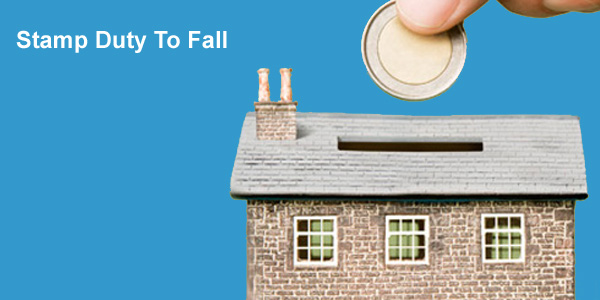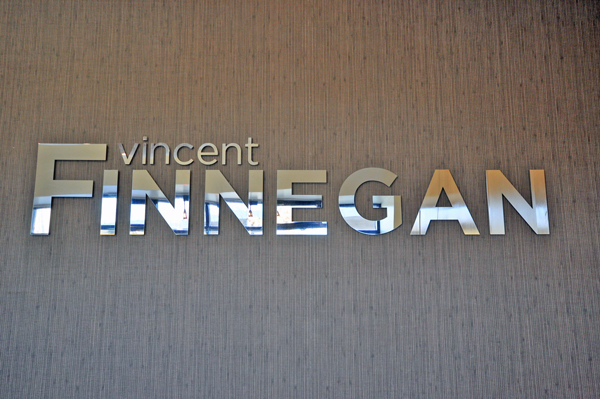
With few options available to our government for incentives - Now is the perfect time to re-visit, that old chestnut, stamp duty!
With genuine reasons for believing that, now more than ever, we have a chance to tempt thousands of heavily saving, rent paying, sitting on the fence purchasers back to property. If the stamp duty was reduced drastically, it could encourage an increase in levels of activity and the multiplier would benefit our economy. Consider that rents will increase while interest rates do too. What a great time to strike a deal just before any stamp duty rate reduction is announced? Will potential purchasers look back at these days and wish they had purchased? I guess we'll have to wait and see.
We need a healthy property market to help bring us out of this recession. Let's hope in early December our government will incentivise as well as cut and tax. Here's to the carrot rather than the stick and 1% stamp duty in December..
DOES THIS sound familiar? You have a growing family and need more space. But while property prices may have crashed, your own property is dwindling in negative equity, you don’t have sufficient savings to pay the mortgage and, with the uncertain economic environment, you’re hesitant in any case to commit to another mortgage. What can you do?
Follow the link below!
http://www.irishtimes.com/newspaper/pricewatch/2010/1101/1224282393409.html
'While there's blood on the streets, buy property' - Interest rates are still low. The rental market is beginning to edge back up. The the Budget is looming and a lot of the competition are staying put.
This is your chance to strike a deal with a willing seller!
So what can you do to take advantage?.

1. See how much can you borrow and how much can you afford to repay?
First, see how much you can borrow and what your repayments will be. The easiest way to do this is to use the mortgage calculator on www.finnegan.ie <http://www.finnegan.ie> . This is determined by your salary, deposit and monthly loan repayments. At present, banks will lend first time buyers up to 92% of the purchase price. This is usually phrased as Loan to Value (LTV). This is usually shown as a percentage and represents the relationship between the size of the mortgage loan and the value of the property. Eg. A mortgage of €90,000 on a property valued at €100,000 would be shown as 90% Loan to Value.
2. Types of Mortgages available
A Mortgage loan is generally spread over between 20 to 35 years. Lenders will generally offer first time buyers a standard repayment mortgage, where you pay interest on the mortgage and repay captial over a certain term eg. 25 years. Some lenders offer interest only options for a certain limited time, where you do not pay back capital but merely the interest charge. This is really a false economy as it reduces your monthly repayments but lengthens the time it will take to repay the loan. Once you have mortgage approval, at which point you will receive a formal Letter of Loan Offer from your lender. This will tell you the maximum amount you can afford to borrow.
Now is the time to start looking for your property. Don’t forget to appy for your First Time Buyer Mortgage Interest Relief on www.revenue.ie
3. Putting in an Offer
Once you have found a property you would like, contact the Auctioneer/Estate Agent and find out if there are any other offers on the property and decide with the agent what you think would be an acceptable offer to put in. Once the agent has relayed this to the Vendor and they have accepted the offer, you will be asked to drop a booking deposit into the Estate Agents. This must be a cheque or bank draft and cannot be borrowed from the bank. It is usually anything between €5,000- €15,000, depending on the purchase price of the property. Now the property is Sale Agreed. If its a private treaty sale, it will be ‘subject to contract’. It is merely a holding deposit and is fully refundable. At this stage both you and the vendor can pull out at any time.
4. Legal fees & Management fees
It is at this stage you must appoint a solicitor, which should cost between €1,200 and €2,000. They will handle the contracts for the sale and arrange for the deeds for the property to be transferred from the vendors solicitor to yours or two your bank. If you are buying an apartment, it would be a good idea to ask the Estate Agent what are the annual management fees involved with the block, as these can sometimes be as much as €2,500 which is a significant sum to take into consideration.
5. Mortgage Valuation and Building Survey
Your lender will insist that you get a valuer and in most cases a surveyor out to the property before they allow the loan to be drawn down. A mortgage valuation usually costs €130 and a building survey should cost between €300 and €400. This should be done as soon as possible to keep the process moving smoothly.
6. Contracts
Once all these necessities have been carried out the contracts will be drawn up by the Vendors solicitor and sent to your solicitor. You will be asked to come in and sign them. It is at this stage you will need to pay the deposit. You will need to have a miminum of 8% of the value of the property saved for your deposit. Again, this cannot be borrowed from the bank. Luckily, as a first time buyer, stamp duty does not apply to you at all. Once the contracts are signed by both sides the property is sold. you have entered in to a legally binding agreement and neither party can pull out.
7. Building Insurance and Life Assurance
Before a mortgage cheque is issued you will need to arrange building insurance. You can get building and contents insurance on the one policy. If you are puchasing an apartment, ensure that you check whether building insurance is part of your annual maintanence fees. It is also necessary to take out life assurance for the amount and term of your mortgage. In the event that you should die before the loan is repaid, the outstanding debt is automatically paid off.
8. Drawing down of the loan/Closing of the Sale
It is at this time that the full amount of the loan must be transferred to the vendors solicitors. You will usually receive one set of keys at your solicitors office and there will be another set available for collection from the Auctioneer that sold you the property.
After 20 years or so, you will own your property fully, so no rent to continue paying...
Vincent Finnegan Limited have a range ‘first time buyer’ suitable properties for sale.
See our residential listings
Vincent Finnegan have just finished an complete upgrade and refurbishment of their Residential office in Dundrum







